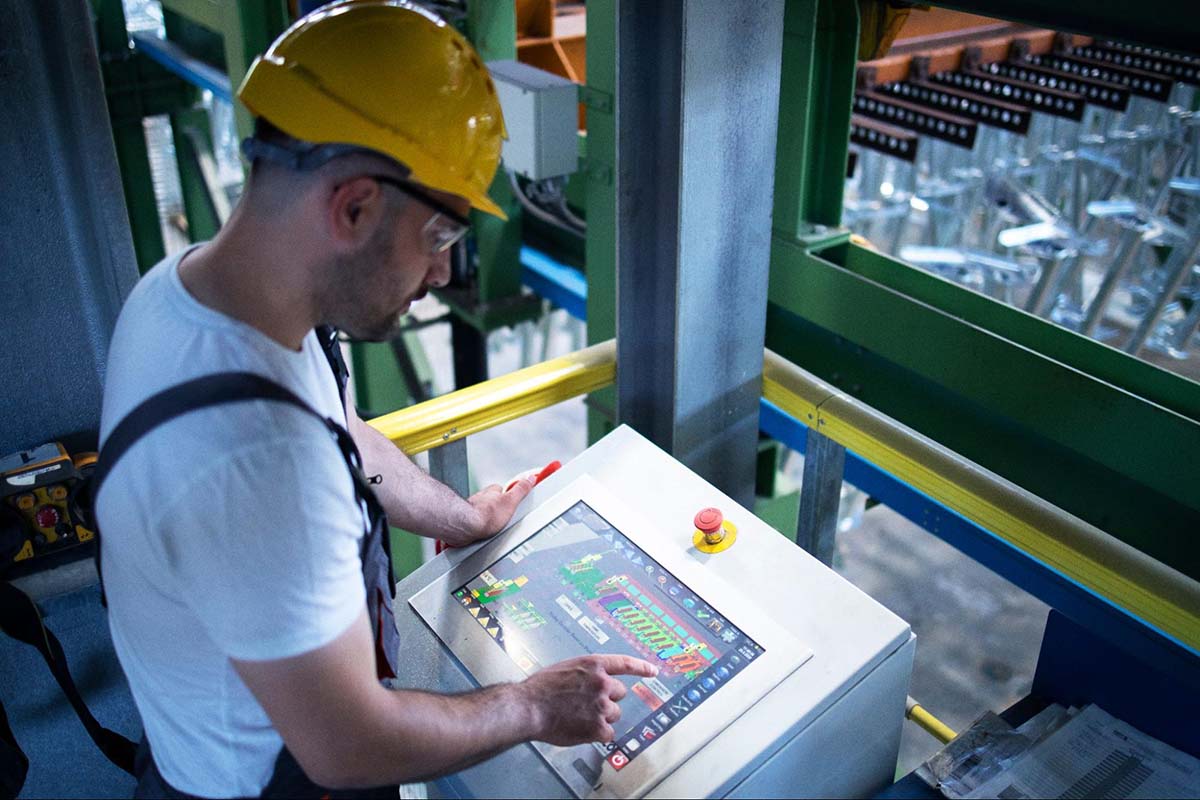
Blog
Executives in the manufacturing sector know all too well how quickly their industry’s landscape can change. However, exploring emerging innovations and business models, such as SAP implementation in the manufacturing industry, presents certain risks to manufacturers.
It’s no secret that those who can adapt to new processes, trends, and technologies have a better chance at survival than those who stick with safe, established processes that have plateaued in potential. This is because how an implementation process is planned, orchestrated, and executed directly impacts most digital transformations’ success and long-term viability.
Knowing how to approach the SAP implementation process can reduce complications and ensure a successful transition. With a successful deployment, you’ll see why 99 of the largest 100 companies in the world run on SAP.
SAP ERP Systems for Manufacturing
SAP ERPs and digital solutions have long been a go-to choice for manufacturers across the globe. It is ideal as a small manufacturing business software solution as it is for a manufacturer with production facilities across the globe.
SAP has numerous solutions manufacturers rely on to get the job done efficiently without sacrificing quality. SAP’s tools let you automate certain repetitive tasks to a surprising degree of complexity and nuance.
Learn more about the nuts and bolts of SAP S/4HANA on our blog:
|
SAP products are ideal for all industries, not just manufacturing businesses, and are adaptable to numerous needs and business processes. Financial institutions, tech agencies, retailers and healthcare facilities benefit from SAP products and solutions.
The SAP Manufacturing Suite
For this article, we’re focusing on the SAP manufacturing suite: digital solutions designed to keep pace with the evolving manufacturing industry. These include the following SAP platforms and software tools:
- SAP S/4HANA. S/4HANA is SAP’s ERP system that helps manufacturers optimize and manage production planning and scheduling. This ERP is the core of SAPs ERP for manufacturing industries.
- SAP MES. SAP Manufacturing Execution System (MES) helps manufacturing companies control, automate, and monitor production processes in real time.
- SAP Digital Manufacturing Cloud. This is a cloud-based version of the SAP MES solution based on an Industry 4.0 approach.
- SAP Manufacturing Integration and Intelligence. This solution capitalizes on IIOT innovations and works to connect production machinery to essential data solutions.
Each of SAP’s manufacturing tools easily integrates with S/4HANA and all other SAP solutions, such as the SAP CX and CRM solutions. SAP provides catered solutions to businesses of all sizes, from small businesses to globally renowned conglomerates.

7 Steps for a Successful Manufacturing ERP System Implementation
Before starting your SAP ERP implementation, it is important to know that this process is a huge undertaking. It will take time and may require minor business disruption. It’s one that demands effective communication and careful consideration from each stakeholder involved in the project.
Be sure to partner with a vendor that understands your organization’s manufacturing needs and capabilities. They should be experienced in the ASAP methodology in SAP implementation which is a proven manner of streamlining the deployment of SAP systems.
Step One: Define Your Business Processes
A SAP ERP software implementation project should not create new processes or change existing ones. Before an SAP implementation begins, an organization’s existing business processes should be clearly outlined.
It is vital to understand the organization’s current manufacturing processes and how they differ across different plants, departments and teams. This will ensure SAP ERP is implemented correctly and help identify where potential areas of improvement can be addressed with other relevant solutions such as the SAP PP module or a resources planning extension.
Step Two: Establish a Project Charter
Clearly define the scope and objectives of SAP implementation and the roles and responsibilities of each team member involved in the project. Starting your project on the right foot will help it run smoothly and keep the line of communication open among team members if problems arise.
When creating a project charter, consider the following:
- Have project objectives been clearly defined?
- Does the project have support from all stakeholders?
- What decision-making process will be used for this process?
- How will change and re-engineering needs be addressed?
- Is your SAP vendor experienced and capable in deploying ERP software for manufacturers?
Step Three: Consider Your Technology Stack
The internal technologies you use should guide your ERP and digital toolkit selection.
For instance, would your organization prefer a cloud based or an on-premise solution? Most modern ERP solutions now run on cloud technology, so if a manufacturer prefers an on-premise solution, they need to be prepared to invest in in-house data centers.
Need an SAP Implementation in the Manufacturing Industry?
Ameri100 specializes in SAP deployments, serving enterprise clients in a variety of industries. Our team has worked with clients within the manufacturing industry and outside it allowing us to bring experience to allow you to push the boundaries of what’s possible.
Another factor to consider is if your existing platforms, software, and mobile applications can integrate with SAP technology. These should be up-to-date and compatible with SAP technology for the final SAP product to operate smoothly.
Step Four: Select Your Best Manufacturing ERP Software
Next, it’s time to research which SAP ERP solutions will best serve your manufacturing needs. The SAP Manufacturing Suite of tools is varied, so consult with an SAP Gold Partner to explore each product’s capabilities, implications and long-term benefits before making a decision.
For instance, consider a global car parts manufacturer that wants to adopt lean manufacturing processes based on an Industry 4.0 model. To do this, they need to connect machines across several plants to be able to monitor and adjust internal processes. SAP S/4HANA and SAP Manufacturing Integration and Intelligence platform would be their best option, as these tools will connect all SAP systems and provide the necessary connectivity and insight.
| Don’t Forget Modules!
The most effective ERPs are ones that have been customized to an organization’s individual needs. This typically requires including specific modules and applications in your ERP package. For instance, dropshipping manufacturers may want to add solutions that can help increase production levels and streamline their supply chain. |
Step Five: Pre-Implementation Testing and Troubleshooting
Before you start the SAP ERP implementation process, request a proof of concept (PoC). This will allow SAP experts to simulate the SAP environment in your company and test the SAP system with simulated data.
By running a PoC, SAP experts can help identify areas of improvement or potential problems before your implementation goes live. This will save time and money during the implementation process and ensure that SAP is operating optimally when it’s rolled out to employees.
Step Six: Arrange SAP ERP Team Training Sessions
Your SAP Gold Partner should provide extensive training sessions for each SAP application and module included in the system. Utilizing the expertise of an SAP expert will help ensure that everyone on the team understands how SAP works and see how it can benefit your organization.
Step Seven: SAP Implementation and Ongoing Maintenance
Finally, it’s time to implement SAP. Your SAP Gold Partner will be able to help you through this step, as well as help you develop the systems that SAP needs to function seamlessly.
Once your SAP ERP implementation is complete, remember the maintenance! SAP requires regular updates and care to continue running optimally. SAP Gold Partners offers maintenance services that help you keep your SAP ERP landscape up-to-date and secure.
Partner with Ameri100 for a Seamless SAP Implementation
Ameri100 is an SAP Gold Partner and a trusted leader in SAP ERP implementations for the manufacturing industry. Our teams of SAP experts have extensive experience with SAP ERP products. They can help you identify the best SAP solutions for your organization and assist with implementation, training, maintenance and troubleshooting.
Contact us today to learn more about SAP ERP solutions and how we can help your organization make the most of SAP.